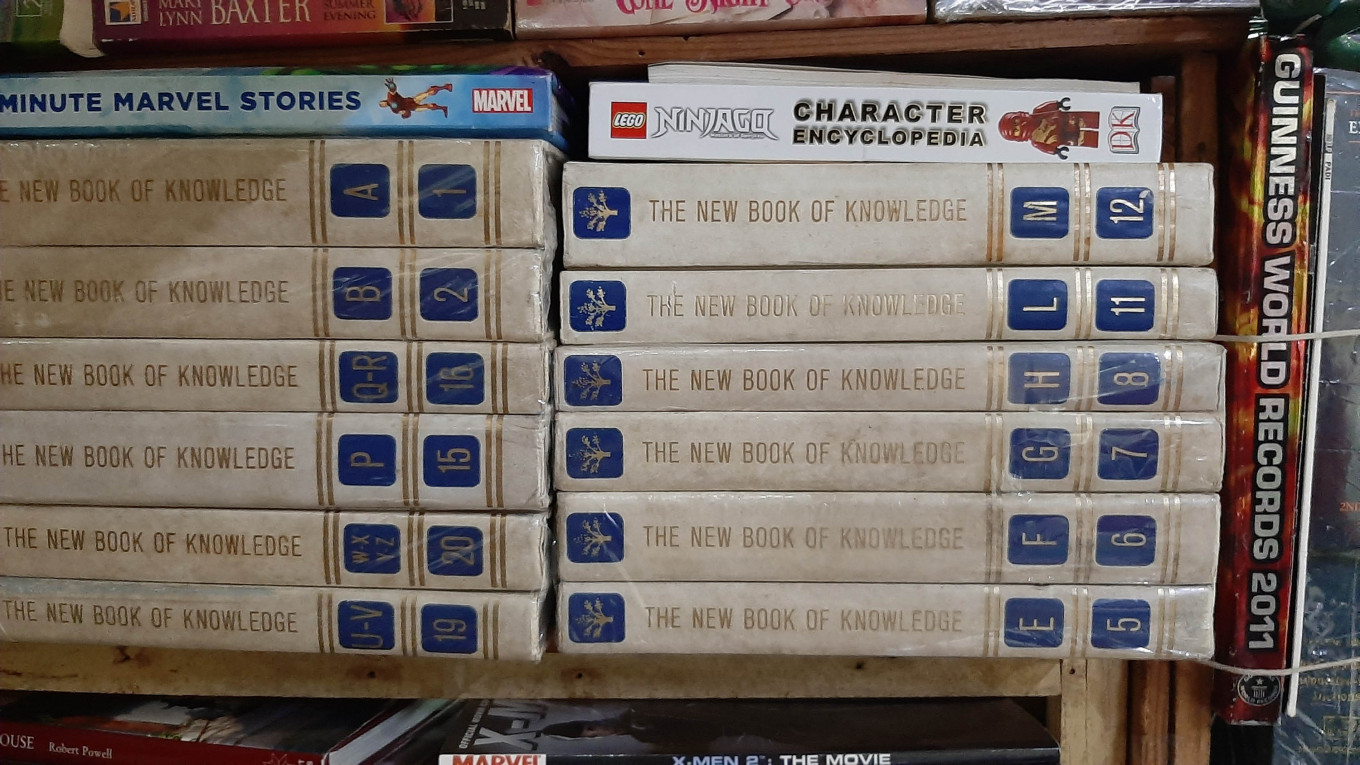Popular Reads
Top Results
Can't find what you're looking for?
View all search resultsPopular Reads
Top Results
Can't find what you're looking for?
View all search resultsYou can trust Wikipedia, but always check sources and citations
When the reliability of information is a matter of life and death in the time of COVID-19, Wikipedia’s volunteer editors have been facing great challenges to present the most trustworthy content possible to the public. Speed and accuracy are essential, but misinformation can infiltrate the platform. Katherine Maher, the CEO of the Wikimedia Foundation, which manages Wikipedia and the Wikimedia projects, shared recently with The Jakarta Post’s Budi Sutrisno how the free encyclopedia is handling the situation.
Change text size
Gift Premium Articles
to Anyone
Q
strong>Question: How do you make sure that every part of the world affected by the pandemic gets coverage despite the demographic bias that most of the editors happen to be from the West?
Answer: It is correct that many of the Wikipedia editors on English Wikipedia are based in North America or other Western countries such as the [United Kingdom], but it is also the case that the people who edit Wikipedia around the world are focusing on the COVID-19 pandemic. We have editors from almost every active language community who have written articles about the COVID-19 pandemic.
One of the ways in which the community is working on this is through the WikiProject Medicine, which is an initiative by people in our medical editing community to ensure that the quality of COVID-19 articles is consistent across languages for critical information about the pandemic. This is a volunteer effort that involves people from many different countries and languages who are committed to the idea that public health information should be accessible.
The other way is through the World Health Organization. We are partnering with the WHO to ensure all COVID-19-related articles have the latest, most high quality and up-to-date information that the WHO is itself providing to the world.
How is Wikipedia staying resilient amid a rapid change of information? Does it really focus on breaking news?
I think the COVID-19 pandemic is unusual in that it is a long, ongoing breaking news event. The good news is that we have actually reached a bit of stability right now, while in the early days, there was so much work happening to document things that were unknown about the disease and about the virus itself. Now that most of the breaking news content and some of the medical information have been established, the editors can really focus on the impact of the pandemic from a public health perspective.
Does Wikipedia really focus on breaking news? Yes. There is a whole group of Wikipedians from many different languages who are interested in ensuring Wikipedia has information about breaking news events, whether those are things like the pandemic, natural disasters or political events such as elections.
The reason it works so well is because of the fact [the editors] tend to spend a lot of time, energy and focus when an event occurs to ensure they’re bringing together all these sources that articles need in order to ensure that information is very high quality. The other reason is that Wikipedia, unlike a newspaper, for example, has a priority on pulling together as much information as possible from many different sources, and it doesn’t have the same requirement to be the first publication to report.
What are the guidelines for Wikipedians to publish and update coronavirus articles? How do they determine which sources they should be using?
The way that Wikipedia handles information quality is by going back to verifiable sources, meaning that those sources of information have to be respected in their field, they have to have some sort of editorial process. In the field of epidemiology, something that is respected in that field would be a medical journal where doctors and clinicians might publish research. In science journalism, it might be a publication in which science journalists are reporting on maybe not the clinical aspects of the disease but the implications for public health.
The way Wikipedia takes on controversies and/or a lack of information is to present that information based on what we do and do not know. In the case of the pandemic, we don't know the source of the virus, we don't know it's zoonotic origin; we only know that it emerged in Wuhan [China]. The way Wikipedia usually addresses this is by actually citing articles that discuss the ambiguity of the virus' origin.
Now that Wikipedia has gained more trust, how do you see the future of Wikipedia?
It is interesting that as we turn 20, we've gone from being a site on the internet that no one trusted to a site that many people trust.
We still believe that people should trust that Wikipedia's intentions are good, but always do the work to check the sources and the citations for really critical information. If you're going to start doing research on the pandemic because you're worried that you may have COVID-19, you probably want to use it as a first place to do research and then also make sure that you're speaking to a physician or that you are continuing to learn more about such a critical life-or-death issue through other sources of information.
What we believe is that Wikipedia can only be successful when the rest of the information ecosystem is healthy. We rely on journalists all over the world to continue to be out there reporting on what's going on in their country and in their communities, and Wikipedians are then another layer of that information ecosystem to help summarize it, synthesize it as another reference that people can rely on when they're seeking context in the information. This is really complimentary in the same way that researchers, clinicians and academics might be doing research and publishing papers and pushing the boundaries of knowledge.










